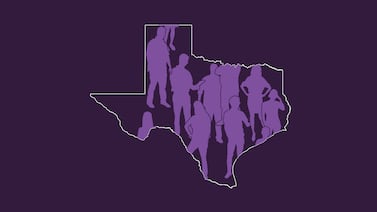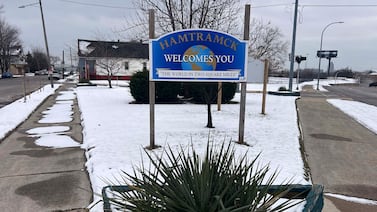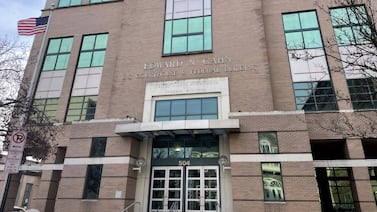The Arizona secretary of state’s office is threatening to sue Cochise County if it moves forward with a hand count of all ballots in the midterm election.
State Elections Director Kori Lorick sent a letter Wednesday to the county supervisors saying the office agrees with the Cochise county attorney’s office and state Legislative Council that, under state law, the county is not authorized to count its ballots by hand. Also, Lorick wrote, a hand count would put the accuracy of the election at risk and the time it would take to hand-tally all votes would make it impossible to meet the state’s deadline for finalizing election results.
“If the Board votes to proceed with a full hand count—putting at risk the accuracy and integrity of our elections—the Secretary will take all available legal action to ensure that Cochise County conducts the 2022 General Election in compliance with Arizona law,” Lorick wrote.
Still, it appears the supervisors will take a vote on the plan, even though early voting is already underway for the Nov. 8 election. They will meet at 2 p.m. Monday to discuss it and possibly vote, according to an agenda posted on the county’s website on Friday.
Supervisors Peggy Judd and Tom Crosby, the two Republicans on the three-member board, want to hand-count all votes cast in the midterm election by the county’s 87,000 registered voters. After receiving Lorick’s letter, Judd told Votebeat that she does not know whether she will vote to make the hand count happen, but she still wants to have the discussion and vote next week.
“I’m not going to give up on it yet,” Judd said.
She doesn’t believe the hand count would be illegal, saying, “there are a lot of legal opinions out there.”
She brushed off other concerns in the letter, saying that votes were counted by hand before vote-counting machines and it worked. She said it would be challenging to recruit a bipartisan team, and it would take a long time, but she wanted to try to make it happen.
“It’s not as big of a deal as some people are worried about,” she said.
The plan as initially proposed was to continue to use the county’s vote-counting machines to count the ballots, but to also do a hand count. The supervisors haven’t provided details of how they’d conduct the hand count, how much it would cost taxpayers, or which method’s results would be official if the two don’t match. The county’s election director estimated a hand count would require 2,500 total hours.
Supervisor Chairwoman Ann English, a Democrat who is opposed to the plan, told Votebeat on Wednesday that, upon reading the state elections director’s letter, “it seemed to be pretty clear that the intention of counting all votes [by hand] is not legal or possible.”
The county attorney’s office repeatedly warned the supervisors earlier this month that their plan was not legal, and the office would block any vote, because allowing a vote on an illegal proposal would increase the county’s liability and risk. It’s unclear how the topic got approved for an official meeting agenda. The county attorney’s office did not respond to a request for comment Thursday.
English said she has not been told that the attorney’s office’s opinion has changed on the matter. She said she believes the other supervisors somehow maneuvered around the county attorney’s office to call the special meeting.
She said she hopes the other two supervisors change their mind about going against the advice of their legal counsel.
The state’s Legislative Council recently weighed in on the topic in an Oct. 5 letter sent to state Rep. Gail Griffin, a Republican who lives in the county, agreeing with the county attorney’s office that a full hand count of ballots is only allowed under state law “if it becomes impracticable to count all or some of the ballots with tabulating equipment.”
Lorick urged the supervisors Wednesday to “abandon this misguided effort,” saying that the vote-counting machines are secure and accurate, and a full hand count raises numerous concerns.
“Notably, hand counting is necessarily time intensive and prone to human error,” Lorick wrote. “Any election director in Arizona — the official responsible for overseeing tabulation of ballots — can attest that it’s impossible to complete an accurate hand count of an election with dozens of races on the ballot in time to comply with applicable statutory deadlines, including the county canvass deadline.”
The deadline requires counties to finalize, or canvass, their elections between six and 20 days after the election.
“Drastically changing procedures now — mere weeks before Election Day — creates significant risk of administrative error and has the potential to cause voter confusion and mistrust in our elections,” Lorick continued.
Judd said that she viewed the letter from the secretary of state’s office as a “threat,” but it would not dissuade her from moving forward. She says she wants to do the count to increase voter confidence.
Election researchers and consultants generally advise against hand-counting ballots, because machine counts are proven to be more accurate and efficient. Pre-election testing and post-election audits, which can involve partial hand counts, help ensure machines counted votes accurately.
The Republican-leaning county is the latest to propose a hand count. The proposal has surfaced around the country, fueled by distrust of vote-counting machines since the 2020 election and fed by conspiracy theorists spreading unfounded claims that voting machines were programmed to switch votes in favor of Joe Biden.
There is no evidence that voting machines were hacked in 2020, all court cases alleging so have been dismissed, and federal agencies and experts have said that 2020 was the most secure election to date.
Jen Fifield is a reporter for Votebeat based in Arizona. Contact Jen at jfifield@votebeat.org.




